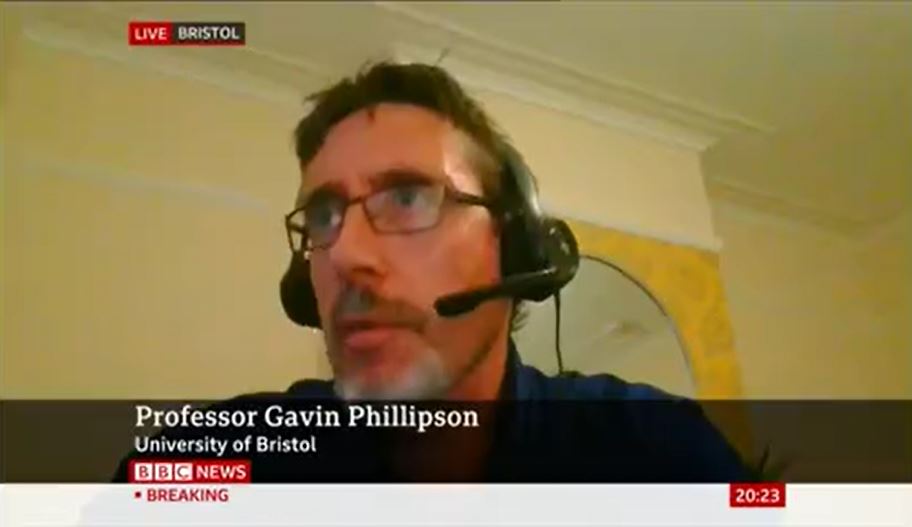On 28 August Professor Gavin Phillipson, Professor of Public Law and Human Rights, was interviewed on BBC News alongside Professor Catherine Barnard (University of Cambridge) following the Queen’s agreement to the Prime Minister’s request to suspend Parliament in September, which will limit the time MPs have to stop a no-deal Brexit.
Commenting on the courts stepping in to challenge the decision, Professor Phillipson said: “It would certainly be going into uncharted territory, as there hasn’t been a case challenging the prorogation of Parliament brought in the courts."
Noting the challenge launched by the team of lawyers who brought the successful Miller case in the Supreme Court, Professor Phillipson said this would be a much more complex case, with the team's previous case "simply saying that government doesn’t have the power under the royal prerogative to trigger Article 50. This isn’t disputing the existence of the power – no one disputes that the government has the power to request prorogation from the Queen; the argument will be that that power has been misused, and that would take the courts into new territory to make a ruling on that, so it will be fascinating to see how that develops."
In the interview he discussed the timing of the next possible steps for those wishing to block a no-deal Brexit. A new government, he said, could only be formed in time to request an extension to Article 50 if they could command the confidence of the Commons following a no-confidence vote against the Prime Minister and appointment by the Queen. The timing of a general election, however, is controlled by the Prime Minister; so even if Boris Johnson lost such a vote, provided no new government was installed, he could simply schedule the election to take place after Britain has left the EU as it is currently set to do on 31 October.
In a final statement, Professor Phillipson said: “I also want to comment on the repeated statements by various government spokespeople that this is perfectly normal, that Parliament is always prorogued in the Autumn for a new session. It’s worth pointing out that the House of Commons Library research shows that in the last 40 years Parliament has never been prorogued for longer than three weeks, and in most cases it’s been prorogued for a week or less. The last three prorogations were I think six days, five days and three days - so five weeks is unprecedented in the last 40 years in the post-war period.”
Professor Phillipson also spoke on BBC5 Live, and was quoted on how the developments have ‘highlighted the quirks of British parliamentary democracy’ in an article in the US journal Newsweek by Brendan Cole:
“This shows the contrast between the British parliament and the U.S Congress, because nothing like this could happen to the U.S. Congress.
President [Donald] Trump can't suspend or interfere with the normal sittings of Congress. This reveals the old royal roots of the British constitution, which still come to the surface.
Those kind of royal powers over parliament demonstrate the way in which parliament is substantially weaker than the U.S. Congress, which stands completely independent from the executive because of the American constitution's conception of the separation of powers."
In a letter to the Times, published on 31 August, Professor Phillipson commented on how the ‘royal bones’ underlying the UK constitution are starting to ‘poke through its democratic veneer’. He instanced not only the Crown’s power to prorogue Parliament and possibly to refuse Royal Assent to backbench Brexit Bills but also the fact that bills relating to the royal prerogative require Queen’s Consent to progress through Parliament: since the Queen acts on the advice of the PM this amounts in practice to another potential Executive veto point. Professor Phillipson concluded:
“These ancient powers are like a loaded gun, lying hidden in the constitution, waiting to be picked up and used by those ruthless enough to discard the centuries-old conventions that normally restrain government. But these are not normal times.”
Earlier this year, in June, Professor Phillipson spoke at a meeting of the All Party Parliamentary Group on the Rule of Law in Westminster, addressing the question as to whether Parliament has the power to stop a No Deal Brexit.
